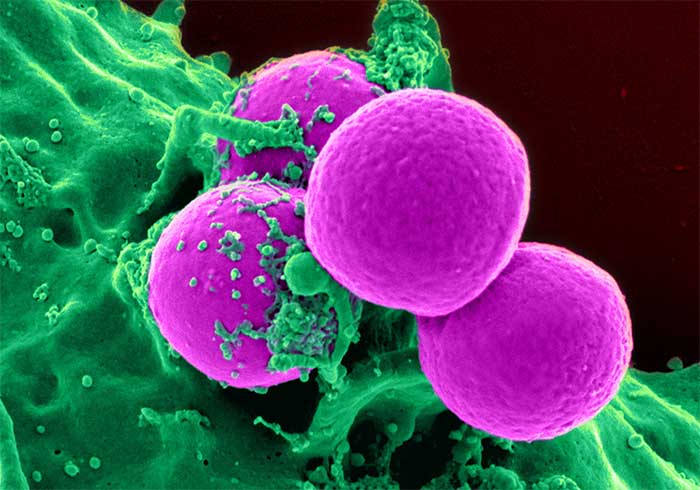News from QED Bioscience
MRSA: New Class of Drugs Addresses the Challenge
A new article in Nature describes the effectiveness of 2 synthetic retinoid antibiotics in killing methicillin-resistant Staph. aureus (MRSA) in a mouse model. These drugs (in the same family of compounds as Vitamin A and modified to minimize toxicity) penetrate, embed, and disrupt the lipid bilayers in the bacterial cell membrane. By targeting the cell membrane, which is probably less prone to mutations than the cell wall, these drugs are intriguing new weapons in the battle against antibiotic resistant Gram-positive bacterial infections.
Each year millions of people are infected by bacteria that are resistant to antibiotics. Addressing this crisis is critical, and each discovery of new classes of antibiotics is an important step in overcoming the challenge of antibiotic resistance.



